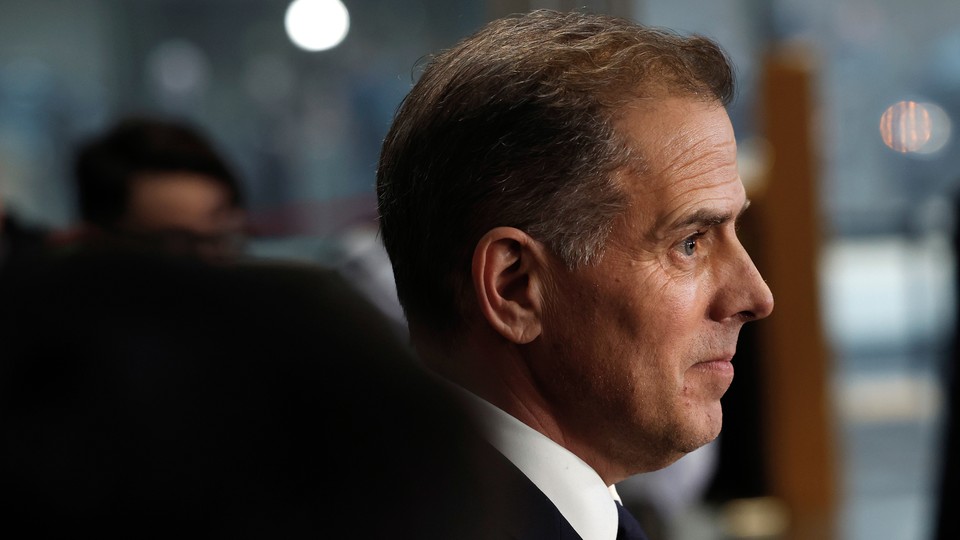Hunter Biden Was Unfairly Prosecuted
5 min read
Critics have argued that President Joe Biden’s pardon of his son Hunter was political nepotism—bad for the country, selfish, the height of privilege. But the actual story is the very opposite of nepotism: Hunter Biden was treated worse than an ordinary citizen because of his family connections. It’s good for the country when the president acts against injustice; President Biden rightly condemned the injustice of his son’s prosecution. His pardon was necessary to prevent Donald Trump’s Justice Department from targeting Hunter for years to come.
I worked as a federal criminal prosecutor for the U.S. Attorney’s Office for the Southern District of New York for 12 years, during which time I supervised and prosecuted many gun and tax cases. President Biden argues that the gun and tax charges Hunter was convicted of should never have been brought. I agree. When I served as deputy chief for the Southern District of New York’s Criminal Division, my job was to approve charging and non-prosecution decisions on gun and tax cases. I would not have approved the felony gun and tax charges brought against Hunter Biden; such charges are rarely—if ever—brought in similar circumstances.
Prosecutors charged Hunter with lying about his drug addiction when he purchased a firearm, and with possessing that firearm while he was a drug addict. They were wrong to do so. As a first-time offender with no criminal record or history of violent behavior who possessed a gun for only 11 days and didn’t use it, he did not pose a public-safety risk to warrant federal gun charges. The public interest is served by treating addiction, not weaponizing it. In a gross display of addiction-shaming, prosecutors used Hunter’s own words from his memoir about overcoming drug addiction against him at trial. They forced his former romantic partners to testify and dredge up details of his addiction. The prosecution’s trial presentation was cruel and humiliating.
Nor should prosecutors have charged Hunter with failing to pay $1.4 million in taxes during the period when he suffered from drug addiction. The IRS’s primary goal—to recover unpaid taxes—was satisfied when Hunter fully repaid the taxes he owed with interest and penalty. Felony tax charges are unwarranted here given that the tax amount is not exorbitant, his nonpayment occurred while he was using illegal drugs, and he fully repaid his taxes. A civil resolution or tax-misdemeanor charges would have been appropriate.
Notably, there had been a fair non-felony plea deal between Trump-appointed Delaware U.S. Attorney David Weiss and Hunter, but congressional Republicans worked to crush it. They opened an investigation into the DOJ’s plea negotiations, held hearings with testimony from IRS case agents and prosecutors, and attempted to intervene in the case before the plea. Amid intense political pressure from Republicans, Weiss killed the deal, requested and obtained special-counsel status, and charged Hunter with gun and tax felonies. As President Biden stated in announcing Hunter’s pardon, a number of his opponents in Congress took credit for bringing political pressure on the process. President Biden is correct that Hunter was treated differently; most criminal defendants do not have members of Congress interfering in their cases to lobby for harsher treatment. That is not how our criminal-justice system is supposed to work.
If there were reason to believe that Hunter had committed any of the more serious crimes that reportedly were under investigation—bribery, money laundering, or illegal foreign lobbying, I would be far less sympathetic to the president’s pardon. But Hunter was never charged with these more serious offenses. Weiss investigated Hunter for six years; that’s an unusually long time for a criminal investigation focused on one individual. If after six years Weiss still does not have a real case against Hunter, then it doesn’t exist. (Complicating matters is the fact that this past February, Weiss charged Alexander Smirnov—a former FBI informant and the GOP’s star witness against Hunter—for falsely accusing President Biden and Hunter of receiving bribes from Ukrainian businessmen.)
The absence of a credible case against Hunter does not mean that a Trump DOJ wouldn’t bring bogus charges against him. During his campaign, Trump vowed that, if elected, he would appoint a special prosecutor to “go after” “the Biden crime family.” In nominating Pam Bondi for attorney general and Kash Patel for FBI director, Trump has further signaled how serious he is about using the DOJ as an instrument of personal revenge. At the 2020 Republican convention, Bondi argued that President Biden and his son were corrupt. Recently, Patel proposed using the law “criminally or civilly” against Trump’s political rivals. When he announced the pardon, President Biden stated, “In trying to break Hunter, they’ve tried to break me—and there’s no reason to believe it will stop here. Enough is enough.” He’s right.
Now is not the time to cling to norms that Trump is poised to shatter. Political prosecutions are coming, and I fear that our democratic institutions will not withstand them.
That’s why President Biden’s pardon should not be his last. President Biden should use his pardon power to protect others from political prosecution just as he used it to protect his son. He should condemn Trump’s plan for political prosecutions. He should pardon Trump’s political enemies preemptively to stymie the Trump DOJ’s politically motivated investigations. In particular, public servants who have drawn Trump’s ire for doing their job should not have to spend precious time and money defending themselves against Trump’s lies. Nor should they have to endure the reputational hit, the safety risk, or the emotional toll of political prosecutions. President Biden alone has the power to stop other needless political prosecutions before they begin. He should use it.



